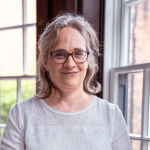
Dr Jake Anders
Associate Professor, and Deputy Director of the UCL Centre for Education Policy & Equalising Opportunities
On this page:
The COVID Social Mobility & Opportunities study (COSMO) is a national cohort study of more than 12,000 young people from across England, who were in Year 11 in the academic year 2020-21.
COSMO is the largest study of its kind to examine the impact of the Covid-19 pandemic on educational inequality and social mobility.
The study is a partnership between the UCL Centre for Education Policy & Equalising Opportunities, the Sutton Trust, and CLS. COSMO was initially funded by UK Research and Innovation, with a second wave of data collection funded by the Economic and Social Research Council.
To learn more about COSMO, or if you are are a participant, please visit the COSMO website.
COSMO recruited more than 13,000 young people who were in Year 11 in 2020-21. It used an area-stratified random probability sample from the National Pupil Database.
The study oversampled young people from disadvantaged, ethnic minority and other often-excluded groups to ensure it reflected the full range of experiences of the Covid-19 pandemic.
The Sutton Trust commissioned an additional boost sample of young people from disadvantaged backgrounds who showed academic potential before the pandemic, to look in more depth at the impact on their chances for social mobility.
There were two waves of data collection between 2021 to 2023. Full details of the content of each wave, including young person and parent questionnaires, are available on the COSMO study website.
Wave 1 was an online survey covering:
Wave 2 used a web-first approach, with face-to-face, telephone and further online follow-up. It covered:
Access the survey data
All COSMO data and documentation are available via the UK Data Service [SN 2000124].

Dr Jake Anders
Associate Professor, and Deputy Director of the UCL Centre for Education Policy & Equalising Opportunities
Jake’s research focuses on better understanding the causes and consequences of educational inequalities, evaluating policies and programmes aiming to reduce these inequalities, and how best to do this evaluation. In addition to leading the COSMO study, Jake’s other work includes research projects for multiple UK government departments, such as work for the Department for Education into the transition from education into work, as well as leading multiple randomised evaluations, such as Education Endowment Foundation-funded work focused on improving teachers’ use of formative assessment. His doctoral research consisted of three linked studies considering aspects of socio-economic inequality in access to higher education in England, considering both the point of entry to university but also its precursors.
Lisa Calderwood
Professor of Survey Research, Managing Director of CLS, Director of GUIDE and Co-Director of Generation New Era

Alissa Goodman
Professor of Economics, Director of CLS and Co-Director of Generation New Era

Praveetha Patalay
Professor of Population Health and Wellbeing